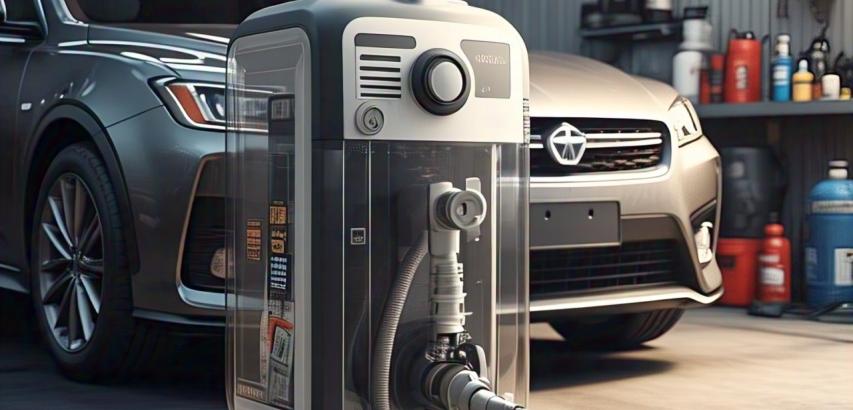A car washing machine is an automated or semi-automated system designed to clean vehicles efficiently, eliminating the need for manual scrubbing. These machines range from compact home-use pressure washers to industrial-grade tunnel systems used in commercial car washes. By combining water, detergents, and mechanical action, they ensure thorough cleaning while saving time, water, and effort.
Types of Car Washing Machines
Pressure Washers:
Portable or stationary units that spray high-pressure water to remove dirt, mud, and grime. Ideal for home use or spot cleaning.
Automatic Tunnel Wash Systems:
Large-scale setups where cars move on a conveyor belt through cleaning stages (pre-wash, foam application, brushing, rinsing, drying).
Touchless Car Washes:
Use high-pressure jets and specialized detergents to clean without physical contact, minimizing scratches.
Self-Service Kiosks:
Coin-operated or app-controlled stations where users manually spray water, soap, and wax using provided tools.
Mobile Car Wash Units:
Compact, trailer-mounted systems for on-demand cleaning at homes, offices, or events.
Robotic Car Washers:
AI-guided machines with rotating brushes and sensors that map a vehicle’s contours for precise cleaning.
Key Features and Technology
High-Pressure Nozzles:
Deliver water at 1,000–2,500 PSI to dislodge stubborn dirt.
Foam Cannons and Detergent Systems:
Apply pH-balanced soaps, waxes, or ceramic coatings for enhanced shine and protection.
Brushless Technology:
Touchless systems rely on water pressure and chemicals to avoid surface abrasion.
Water Recycling:
Advanced systems filter and reuse up to 80% of water, reducing waste.
Drying Mechanisms:
Air blowers or microfiber cloths eliminate water spots post-wash.
Smart Controls:
IoT-enabled machines offer app-based scheduling, payment, and performance monitoring.
Applications
Residential Use: Compact pressure washers for DIY home cleaning.
Commercial Car Washes: High-volume tunnel systems for quick service.
Dealerships and Fleets: Automated systems to maintain large inventories.
Eco-Friendly Services: Mobile units using biodegradable detergents and minimal water.
Advantages
Time Efficiency: Cleans a car in 5–15 minutes vs. 30+ minutes manually.
Consistent Results: Uniform cleaning without human error.
Water Conservation: Uses 30–50% less water than hose washing.
Versatility: Adapts to cars, trucks, motorcycles, and RVs.
Reduced Labor Costs: Automation minimizes staffing needs.
Considerations
Initial Cost: Commercial systems more than 10,000.
Maintenance: Regular servicing of pumps, brushes, and filters is critical.
Space Requirements: Tunnel systems need significant real estate.
Environmental Regulations: Wastewater disposal must comply with local laws.
Vehicle Safety: Poorly maintained brushes or high pressure may damage paint.
Popular Models and Brands
Kärcher HD Series: Heavy-duty pressure washers for home and commercial use.
WashTec G5: Modular tunnel systems with water recycling tech.
Ryko SoftGloss: Touchless wash systems for scratch-free results.
Autoequip RoboWash: AI-driven robotic arms for precision cleaning.
Innovations and Sustainability
Solar-Powered Units: Reduce reliance on grid electricity.
Nanotechnology Coatings: Water-repellent treatments applied during washing.
Predictive Maintenance Sensors: Alert operators to potential system failures.
Car washing machines redefine vehicle maintenance by blending speed, efficiency, and eco-consciousness. From budget-friendly pressure washers to AI-driven robotic systems, they cater to diverse needs while addressing global water scarcity and labor challenges. As sustainability becomes a priority, innovations in water recycling and green detergents are setting new industry standards. For car owners and businesses alike, investing in the right washing technology ensures spotless vehicles, operational efficiency, and a smaller environmental footprint—proving that clean cars and a clean planet can go hand in hand.
 |  |  |
